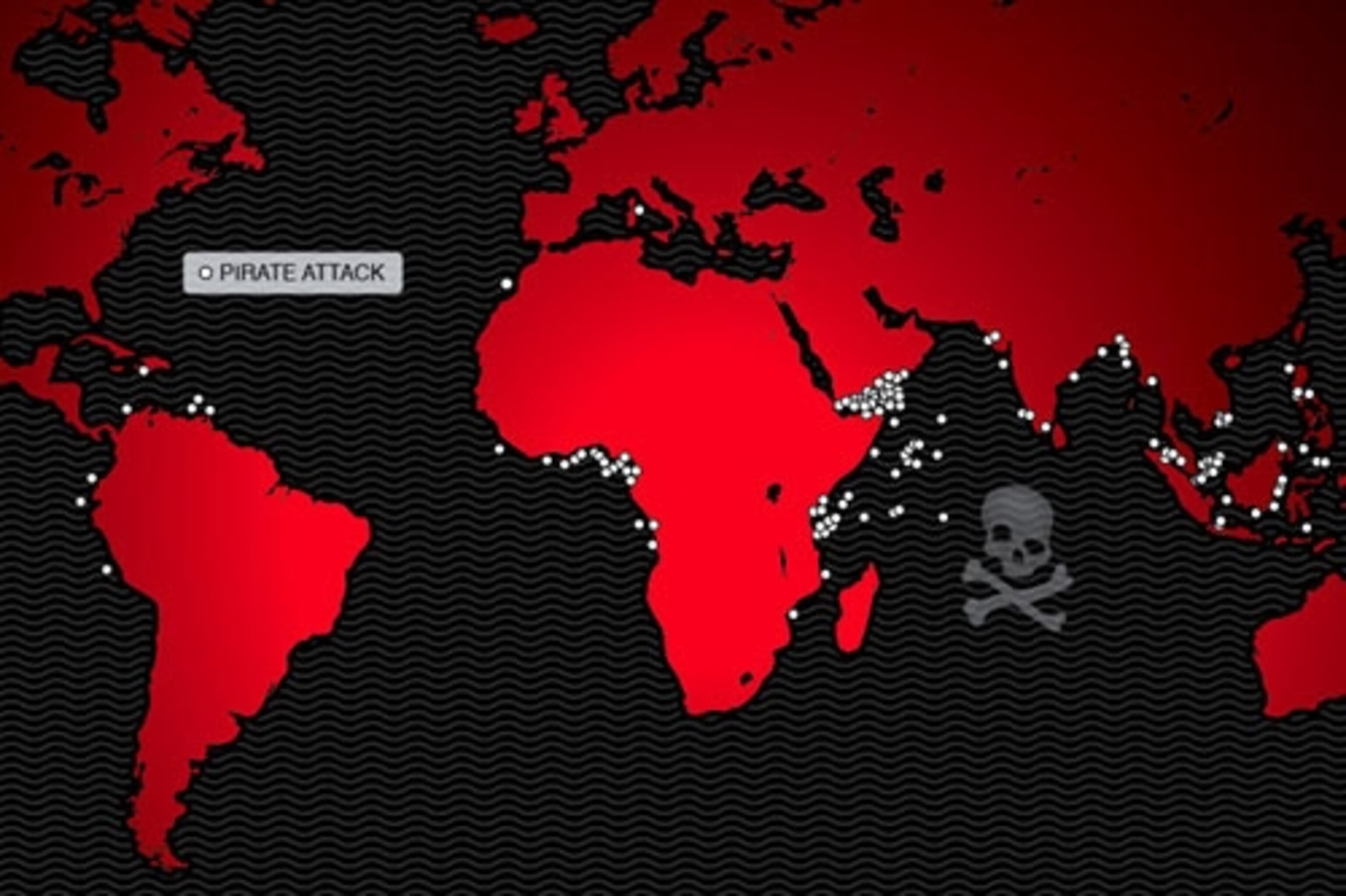Alex Perry is the author of Falling Off the Edge: Travels Through the Dark Heart of Globalization
Pirates can be murderers, adventurers, great seamen, great thieves, mercenaries, gentlemen buccaneers, rapists, or plunderers—and often, all of those things in one ship. They have operated from the Caribbean to the Mediterranean to the Indian Ocean and the Pacific, and they are as old as seafaring itself. But wherever they base themselves and however cruel or righteous they may be, they are always one thing: rebels. They reject law. Many also reject state-initiated injustice, such as the Caribbean pirates who took in slaves as equals in the 17th and 18th centuries, or the pirates in Indonesia or Somalia today, who fight against a world economy that has shut them out, but happens to sail—and fish, and dump waste—past their coast. That doesn't make any of the pirates I've met particularly honorable men. Most would laugh at the suggestion. But it does mean that piracy will live on as long as there is sufficiently unjust distribution of wealth in the world to move men to rebel against it, and as long as geography conspires to force the rich to sail past the door of the poor, such as in the Malacca Straits or the Gulf of Aden.
It's a precarious life. Setting yourself up outside the established norms of world commerce and statehood makes an enemy of the world—and you have no back-up from any kind of government. As is happening with the Somali pirates today, now facing an international armada, and happened, too, with their Barbarry and Caribbean forebears, the world does not tolerate such full-frontal challenges—and for some powerful reasons. The pirates don't just challenge the ability of a shipping line to make its deliveries on time and unmolested. They attack the arteries of global prosperity and flout global authority, everything, in other words, that a government is and much of what it is charged with protecting. The fact that pirates know this, and still choose to fight to take their piece, doesn't make them wise. There are also very few whom, in Robin Hood fashion, it makes admirable. But it does make them arrestingly courageous. And that is why, however ruthless and greedy they may be, the romance of piracy will also never die.
Read more in Alex's feature, "A Brief Trip to Pirate Island," in the February 2009 issue >>
The Lawless Sea Map*
The collision of wealth and poverty around narrow sea passages creates an environment ripe for piracy. The good news: Private yachts are rarely targeted (there were only five such cases reported worldwide through November 2008). The bad: Tankers are being hijacked in record numbers. East Africa's Gulf of Aden, the Niger River Delta, and the Strait of Malacca recorded the most incidents of piracy in 2008. Each is a major trade route near impoverished shores.
* Map Source: The International Maritime Bureau's Piracy Reporting Centre. Map by Jason Lee; Skull by Aaron Ashley
